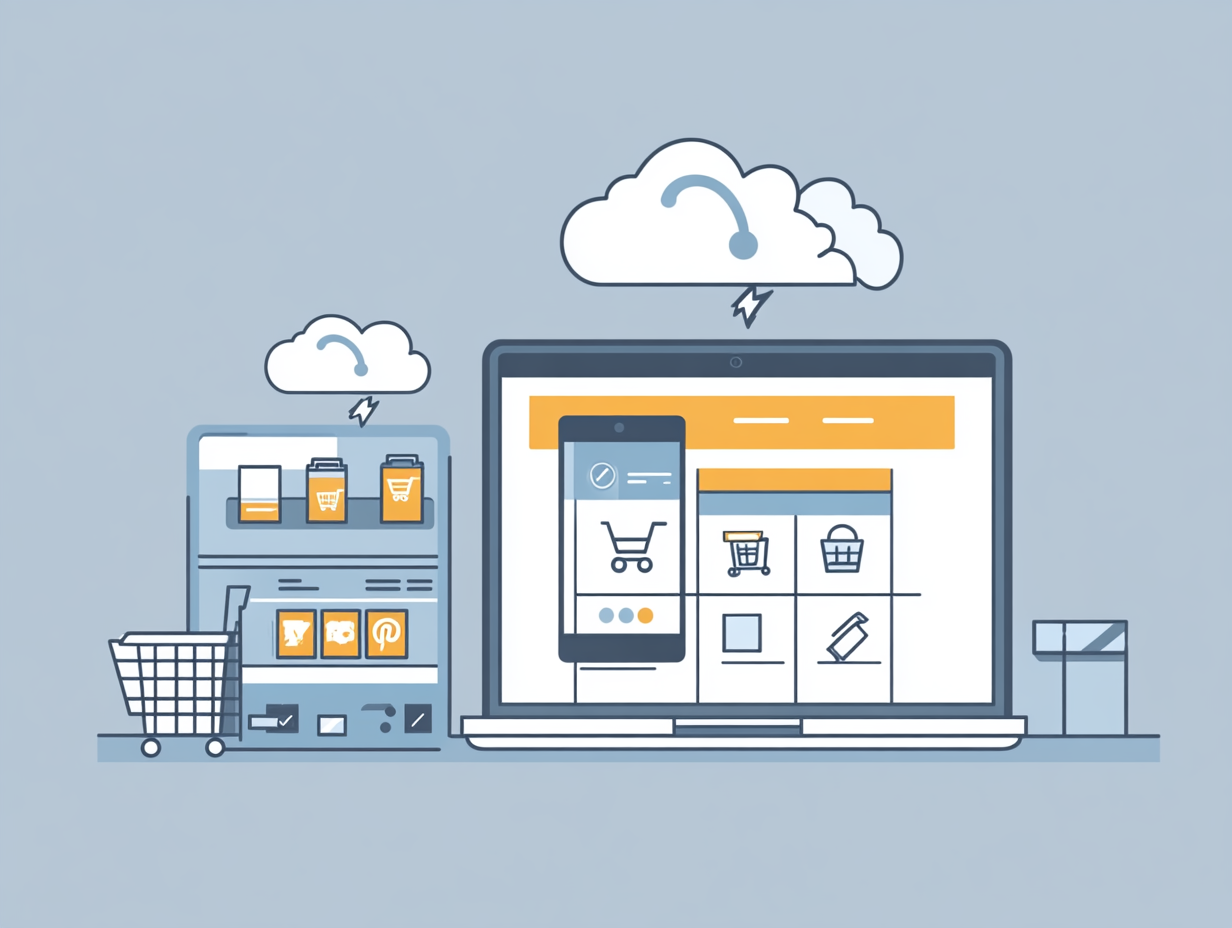Businesses must meet these expectations while keeping development and maintenance costs under control. Enter Progressive Web Apps (PWAs) — the perfect blend of high performance, native-app-like experience, and universal accessibility. PWAs are transforming how companies build for the web, offering a powerful alternative to traditional mobile apps.
PWAs combine the best features of websites and mobile applications into one solution. They're fast, reliable, secure, and capable of running offline, sending push notifications, and being installed on a user’s home screen — all without going through an app store. Most importantly, PWAs are designed with user experience (UX) at their core.
What Makes PWAs Different?
Progressive Web Apps are web applications enhanced with modern web capabilities to deliver an app-like experience directly in a browser. Built using standard web technologies like HTML, CSS, and JavaScript, they don’t require platform-specific coding for iOS or Android, which saves time and resources.
PWAs rely on three critical components: service workers for offline capabilities and caching, web app manifests for installability, and HTTPS for secure communication. These technologies allow PWAs to perform just like native apps, but with the reach and flexibility of the web.
Speed and Performance Optimization
One of the standout features of PWAs is speed. Studies consistently show that users abandon websites and apps that take too long to load. PWAs are optimized to load instantly, even in poor network conditions. This is possible through advanced caching strategies managed by service workers that store key assets locally and fetch updates in the background.
The result? Faster initial loading, snappier navigation, and dramatically reduced bounce rates. These performance gains aren’t just good for users — they also contribute to better SEO rankings and increased engagement metrics.
Seamless User Experience on All Devices

User experience is the backbone of a successful digital product. PWAs provide a consistent, high-quality experience across devices and screen sizes. Responsive design ensures the interface adapts gracefully to smartphones, tablets, laptops, and desktops without the need for separate versions.
PWAs also support native-like interactions such as smooth scrolling, touch gestures, and full-screen modes. Users can interact with the app as they would with a native mobile application, but with the benefit of immediate access via a URL and no installation hurdles.
Additionally, PWAs can work offline or in low-connectivity areas — a feature that’s especially critical for users in emerging markets or during travel. Offline access ensures that the user journey remains uninterrupted, boosting satisfaction and retention.
App-Like Features Without the App Store Hassle
One of the biggest advantages of PWAs is the ability to offer app-like functionality without the friction of downloading from an app store. PWAs can be added to a user’s home screen with a single tap, occupy less storage space, and update automatically in the background.
Push notifications are another powerful feature enabled by service workers. Businesses can re-engage users by sending timely, personalized alerts — whether it's a reminder, promotion, or breaking news update. This level of interaction keeps the brand front and center without relying on costly native app development.
Cost-Effective Development and Maintenance
Building native apps for multiple platforms often requires maintaining separate codebases, hiring platform-specific developers, and dealing with app store approvals. PWAs simplify this process with a single codebase that runs everywhere a browser exists.
This unified approach drastically reduces development time, costs, and effort, especially for startups or companies managing multiple web properties. Updates and bug fixes are deployed instantly without waiting for app store reviews, ensuring faster iteration and improved time to market.
Enhanced Security and Compliance
PWAs are served over HTTPS, ensuring secure communication and protecting user data from interception and tampering. Service workers can only operate under secure contexts, adding another layer of protection for sensitive data.
This security model supports compliance with privacy standards like GDPR or CCPA. Since no installation is required, users can try and engage with the app without granting excessive permissions — a key factor in user trust and conversion.

SEO Benefits and Discoverability
Unlike native apps, PWAs are fully indexable by search engines. Their lightweight architecture, fast loading speeds, and rich metadata all contribute to strong SEO performance. Businesses can benefit from organic traffic while delivering an app-like experience directly from search results.
This discoverability gives PWAs an edge over traditional mobile apps, which are often hidden behind app store listings and harder to find via search engines. For businesses focused on reach and visibility, this is a critical advantage.
Real-World Use Cases Across Industries
From retail and e-commerce to travel, finance, and healthcare — PWAs are making a significant impact across sectors. Brands like Twitter, Starbucks, and Uber have adopted PWAs to provide high-speed, consistent user experiences to millions around the world.
For example, retailers use PWAs to drive conversions by offering fast, offline-capable shopping experiences with push-based re-engagement. Banks use them to ensure secure, app-like interfaces for customers in areas with inconsistent internet access. The use cases are vast and growing as technology evolves.
Future-Proofing Digital Strategy with PWAs
As digital expectations continue to rise, businesses need flexible, scalable solutions that deliver superior performance and UX without the overhead of native development. Progressive Web Apps offer this balance — they’re faster, lighter, easier to build, and more engaging than traditional web apps or native apps alone.
For businesses looking to invest in future-ready digital experiences, custom development is key. Avenga – Custom Software Development helps organizations build advanced web solutions, including PWAs, that combine performance, accessibility, and stunning UX. Learn more at https://www.avenga.com/web-development/
PWAs are more than a trend — they represent the next step in the evolution of the web. They empower companies to deliver fast, secure, and delightful digital experiences that meet the needs of modern users anytime, anywhere.































